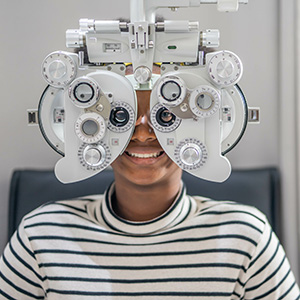
Our Office
680 Kinderkamack Rd
Suite 103
Oradell, NJ 07649
Existing Patients: (201) 265-9040
New Patients: (201) 241-4222
Visit Us Online

Anterior segment surgery is a specialized procedure that focuses on treating conditions that affect the front structures of your eye, including the lens, pupil, and iris.
Anterior segment disorders can be hereditary or acquired. Acquired disorders result from trauma from an accident or a previous cataract surgery that damages these structures at the front of your eye and interferes with your vision and overall eye health.
You may be a candidate for anterior segment surgery if you have symptoms of an anterior segment disorder, such as:
You may also benefit from surgery to treat cataracts, one of the most common types of anterior segment disorder. A cataract describes a clouding of the eye lenses, often due to aging. While a cataract can develop in one or both of your eyes, the condition doesn’t spread from one to the other.
Anterior segment surgery is different for every person. The goal of anterior segment surgery is to repair damage to the delicate structures at the front of your eye. Dr. Prince may perform this type of surgery at the same time as a corneal transplant.
There are a number of techniques, including laser surgery, Dr. Prince and his team can use to reconstruct the damaged sections of your eye. Your surgery may involve:
When treating cataracts specifically, Dr. Prince can replace your natural lens with an artificial one and several lens options are available. With the new lens, your vision significantly clears, and you may even be able to read without glasses after your surgery.
Following your surgery, you can expect to use medicated eye drops to help your eye heal. Healing can take up to a month.
If you’re not able to see clearly because of iris damage or cataracts, schedule a consultation with Dr. Prince to discuss your options for anterior segment surgery. You can book an appointment by calling the office of Andrew M. Prince MD Ophthalmology and Ophthalmic Surgery nearest you today.
